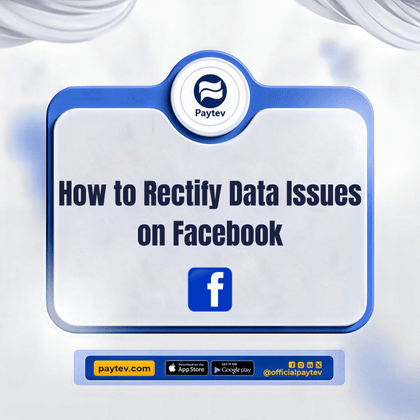Facebook has become an integral part of our lives, a platform where we connect, share, and engage with the world. But like every digital service, it comes with its own set of challenges—data issues being one of the most common. Whether it’s privacy concerns, data breaches, or just the sheer amount of personal information floating around, resolving these issues is crucial to maintaining your online safety and peace of mind. In this post, we’ll walk through some practical steps to help you manage and resolve data issues on Facebook.
1. Check and Update Your Privacy Settings
The first step in resolving data issues is making sure your privacy settings are airtight. Facebook offers a variety of options to control who sees your posts, what information is visible, and how your data is used. To do this:
- Go to the settings menu on your Facebook profile.
- Navigate to the “Privacy” section.
- Review each option carefully, especially who can see your future posts, who can send you friend requests, and who can look you up using your email address or phone number.
- Make sure you’re only sharing your content with trusted people.
This step is crucial because it limits the exposure of your personal information, reducing the chances of it being misused.
2. Regularly Review Your Activity Log
Your activity log is like a digital footprint of everything you do on Facebook—posts, comments, likes, shares, and more. Regularly reviewing this log allows you to spot any unusual activity that might indicate a data breach or unauthorized access. Here’s how to review it:
- Go to your profile and click on the three dots near your cover photo.
- Select “Activity Log” from the dropdown menu.
- Go through the entries and delete or hide any posts that you no longer want associated with your account.
This habit not only helps you keep track of your digital activities but also helps in maintaining control over your data.
3. Download and Review Your Facebook Data
Facebook allows you to download a copy of all the data it has on you. This can be an eye-opening experience and is a great way to check for any inaccuracies or unauthorized data collection. To download your data:
- Go to “Settings & Privacy.”
- Click on “Your Facebook Information.”
- Select “Download Your Information.”
- Choose the data range and format, then click “Create File.”
Once you have the file, go through it to see exactly what Facebook knows about you. If you find any discrepancies or data you’re uncomfortable with, you can take steps to delete or update this information.
4. Be Wary of Third-Party Apps and Websites
Many of us have linked our Facebook accounts to third-party apps and websites for convenience, but this can also be a gateway for data issues. These apps often request access to your Facebook data, which can be risky. To manage this:
- Go to “Settings” and click on “Apps and Websites.”
- Review the list of apps and remove any that you no longer use or trust.
This ensures that only the apps you actively use have access to your Facebook data, reducing the risk of data leakage.
5. Report and Secure Your Account Immediately
If you suspect that your data has been compromised, it’s important to act quickly. Facebook has a straightforward process for reporting issues and securing your account:
- Go to “Help & Support.”
- Click on “Report a Problem” and follow the instructions.
- If your account has been hacked, go to the “Security and Login” section in your settings, and change your password immediately.
Taking prompt action can prevent further damage and help you regain control of your account.
Conclusion
Data issues on Facebook can be daunting, but with the right approach, they’re manageable. By staying vigilant and taking proactive steps, you can ensure that your personal information remains safe and secure. Remember, it’s your data so take control of it.
Paytev is always here.
